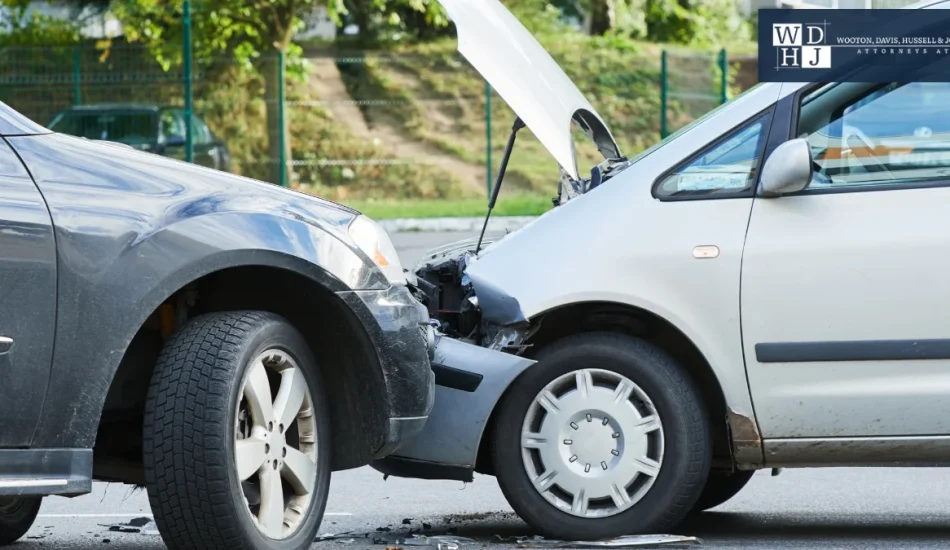|
|
Last Modified on Oct 12, 2025
A car crash can be a traumatic event and leave people involved with significant pain, financial burden, and stress. It is common to feel overwhelmed and unsure of your next steps. One of the most common questions we hear is: What evidence should I gather after a car accident in West Virginia? Read on to learn how you can set yourself up for a successful outcome in your case and protect your rights and interests following a car accident.
What to Do After a Car Accident in West Virginia
The aftermath of a car accident can be confusing and frightening. It is essential to remain calm and take steps to protect your safety and rights. Immediately following an accident, call local law enforcement to file a report.
Follow all directions they give you, which may include moving your vehicle out of traffic and checking other parties for injuries. When the police arrive, they will ask you to provide a statement about what happened. Do not apologize or admit fault.
- Photographs and videos – If possible, take photographs or videos of any damage to your vehicle, the positions of the vehicles, the scene of the accident, and any important road or weather conditions.
- Contact information – Make sure you get the contact information, insurance policy details, and driver’s license number of any other drivers involved in the accident. Make a note of the license plate numbers of the other vehicles and try to get contact information of any witnesses present.
- Medical assessment – Even if you do not feel injured, get checked thoroughly by a medical professional. Injuries can often take a while to show signs, and you may need to go to the doctor again in the days following the accident. Keep all accident-related medical bills and records in one place.
- Accident report – Report the car accident to your insurance company the same day, if possible, or as soon as you can. Only report the facts of the accident. Do not admit fault and note the claim number. You can generally get a copy of the official law enforcement report shortly after the accident.
- Correspondence with insurance companies or lawyers – You may be contacted by adjusters from the other driver’s insurance companies or lawyers in the days or weeks after the accident. In some cases, you may even be pressured to sign a settlement offer to resolve the process quickly. However, it is crucial to know that signing anything can often put your right to recover damages at risk.
- Documentation of lost wages and other expenses – This can include pay stubs, W-2s, tax returns, a letter from your employer, doctor’s notes, business records, profit and loss statement, or invoices.
- Estimates for repairs – In addition to the photographs or videos of damage, be sure to get an official estimate for repairs. This can be paper or electronic. Just make sure you save the documentation somewhere you can access it.
West Virginia Car Accidents
According to a recent report by TRIP, a national transportation research nonprofit, West Virginia has the third-highest traffic fatality rate in the United States. This is despite a 10% decrease in statewide traffic fatalities. The report estimates $7.1 billion worth of economic and non-economic costs, including medical expenses, lost productivity, insurance administration, emergency services, legal and court costs, and more.
FAQs
Is West Virginia an At-Fault State for Car Accidents?
Yes, West Virginia is an at-fault state for car accidents. West Virginia uses a modified comparative fault model for car accidents, which can assign fault percentages to one or more parties. A person’s ability to recover damages may be limited by any fault they are assigned in the accident, even if they are more injured than other parties. Your lawyer can help you understand the fault in your particular case.
How Can You Prove Negligence?
To prove negligence, you must show that the other party had a duty of care, that they did not meet the standard of care required by that obligation, that the injury would not have happened if they had met the obligation, and that you suffered damages as a result of the injury. Such damages can include physical injuries, property damage, and/or pain and suffering. The person making the claim must provide evidence of negligence.
What Evidence Is Needed to Prove Damages?
The evidence needed to prove damages can be one or more kinds of information. Common kinds of evidence can include statements from witnesses, photos or videos, hospital and other medical records, police reports, and financial records. The most effective evidence shows negligence or reflects the consequences of the accident for the injured party. A trusted car accident lawyer can often help gather such evidence.
How Do Insurance Companies Decide Who Is at Fault?
Insurance companies decide who is at fault by investigating all the evidence available related to the accident. In most cases, this can include an accident report by the responding law enforcement officer, statements from witnesses and parties involved in the accident, and photos and videos of the accident and damage. Then the claims adjuster at the insurance company assesses this information and compares it to traffic laws.
Hire a Car Accident Lawyer
If you or a family member is dealing with the aftermath of a car accident, an experienced car accident attorney can guide you through the claims process and make sure your rights and interests are preserved in interactions with police, insurance companies, and other parties. In some cases, your lawyer may also be able to investigate and find additional evidence, such as expert witness testimony.
At Wooton, Davis, Hussell & Johnson, PLLC, our legal team has decades of experience advocating for West Virginia clients. Your attorney is well-versed in West Virginia car accident laws and has the negotiation and litigation skills to help you get the most favorable outcome possible in your car accident claim. Contact our offices today to schedule a consultation.




